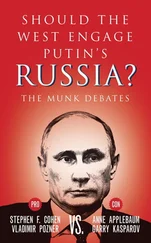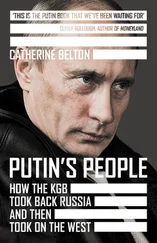The line on Sakharov was that his anti-Soviet stances could only be the result of bad influences upon him, especially that of his firebrand wife, Elena Bonner, who had been born into Communist “royalty” and grown up in luxurious apartments (though everything in them belonged to the state, as indicated by the small copper tag with a number on every piece of furniture). Her father was executed in the purges of 1937 and her mother was in the camps from that same year until 1954. Bonner was half Jewish, more than Jew enough for the KGB. Putin, who would let those close to him know that he took no pleasure in anti-Semitism, had no problem agreeing with those who expressed such opinions on the sound philosophical basis of—why spit against the wind? But, if only from the point of view of professional finesse, he did not like how the affair was handled, especially the “illegal” arrest and internal exile of Sakharov for protesting the Soviet invasion of Afghanistan in December 1979. “The Sakharov affair was crude,” judged Putin. [78] Putin, First Person , p. 50.
Putin denies that he did any work for the Fifth Directorate in its task of suppressing ideological subversion. Though his image gained luster from his work in espionage, there was no upside in admitting to helping crush dissent, especially in the years immediately after the fall of the Soviet Union, when everyone was scrambling to provide themselves with some sort of democratic credentials. It is of course very much in the interest of Putin’s enemies to prove he worked in the Fifth Directorate. But it’s not only his enemies who hold that view. Putin’s friend and KGB colleague in Dresden, Vladimir Usoltsev, who wrote an entire book, Co-worker, about their relationship, took it for granted that Putin had gotten all his unorthodox ideas from all the dissident literature he had read as part of his job of suppressing it: “Gradually it dawned on me that Volodya had acquired all his fancy dissident ideas back in Leningrad while working in the 5th.” [79] Vladimir Usoltsev, Sosluzhivets (Moscow: Eksmo, 2004), p. 186, my translation.
Putin, he says, showed particular esteem for the work of Solzhenitsyn, on whom he would bestow high state honors many years later.
Putin continues to deny having worked in the Fifth or having any dissident ideas, fancy or otherwise. Confiscated dissident literature, samizdat, no doubt circulated among KGB agents, sexy and forbidden as an errant issue of Playboy .
What’s the truth? There was a brief period in the early nineties when Russia was on a spree of liberty and the KGB archives were opened up to scholars and antiseptic sunlight. That didn’t last long, and it’s a safe bet that nothing of the sort will be coming along again any time soon. Given that, probably the truest thing that can be said is that it doesn’t matter greatly if Putin worked in the Fifth or merely collaborated with it from time to time or had in fact nothing to do with it. Though literature and life had already lent him a certain light ironic attitude, he was still defined by the virtue he valued most: loyalty. He was loyal to the KGB and its chief, Andropov. No matter what private sentiments he harbored, Putin would not have deviated an iota from KGB policy. He would have supported Sakharov’s exile, the use of psychiatric incarceration as punishment, and even Andropov’s ban on any public mourning for John Lennon in 1980. He was a company man.
And for that very reason he had to be proud and amazed when in November 1982 his boss became the boss of the whole Soviet Union. Andropov took the helm at a dark time. The invasion of Afghanistan had led to a boycott of the 1980 Olympic Games in Moscow. A civilian airliner, Korean KAL 007, was shot down after having strayed over Soviet territory, a U.S. congressman among the 269 victims. Reagan branded the USSR the “evil empire” and called for implementation of “Star Wars,” a missile defense program that might have had little chance of success but which could bankrupt the Soviets if they tried to match it. Andropov began purging corrupt officials, which gave public morale a bit of a boost, but he mostly seemed interested in nabbing malingerers in bath houses and movie theaters, acting more like a truant officer than a tyrant enlightened with good intel.
Later it would emerge that Andropov was, like Dzerzhinsky, the founder of the security services, a bit of a poet. It could even be said that he created something of a unique literary genre—the brevity of life as mourned by one of its abbreviators:
We are fleeting in this world, beneath the moon.
Life is an instant. Non-being is forever.
The Earth spins in the universe,
Men live and vanish…. [80] Dmitri Volkogonov, Autopsy of an Empire (New York: Free Press, 1998), p. 382.
There was even some poetic justice in Andropov’s death after less than fifteen months in power. Dying of renal failure, he was like the Soviet system, which could not purge itself of the poisons it secreted. The hagiography machine went into immediate operation after Andropov’s death. He was lent a cloying tragic aura and became the Saint Who Had Not Had Time to Complete His Mission on Earth. Someone else would have to do it.
Though whether or not Putin spent any time in the Fifth Directorate suppressing dissent must remain conjecture, there is no question that he was viewed within the KGB as an intelligence agent who should be trained for the plummiest of assignments, service abroad.
And thus it was that in the Orwellian year of 1984 Major Vladimir Putin, now a married man, traveled again to Moscow, this time to spend a year at the Red Banner Institute, which had just been renamed the Andropov Red Banner Institute. This was the highest and most elite school, accepting only three hundred pupils a year and of such state significance that to even reveal its address was considered treasonous.
One of the odder side effects of Gorbachev’s glasnost and the greedy turbulence of the Yeltsin nineties was that many top KGB officers rushed to cash in by writing tell-all books about their clandestine careers. Remarkably, most of them proved closet liberals just waiting for the chance to breathe free. Since these were top KGB officials, including one general, Oleg Kalugin, they all had studied at the Red Banner Institute. For that reason, we have a pretty fair idea of Putin’s experience there after arriving in July 1984. The course was spartan and severe, with reveille at 6:45 a.m. and lights-out at 11:00 p.m. Classes were held six days a week, with students able to leave the institute grounds only between 3 p.m. on Saturday and 9 a.m. on Monday. Putin’s wife would come to Moscow to visit him once a month, and he got back to Leningrad a couple of times during the year. Though a married man, a major in the KGB, and a student at the highest intelligence school, Putin had not lost any of his street-brawler ways. During one trip home, pestered by a punk in the Leningrad metro, he socked him so hard he broke his own arm. Putin was very worried, telling his friend Roldugin: “They’re not going to understand this in Moscow. I’m afraid there are going to be consequences.” [81] Putin, First Person , p. 62.
But there weren’t any consequences for Comrade Putin, or Comrade Platov, as he was known in the school, where everyone’s name was changed. In addition to studying German, he took a class in the structure of the KGB, which was labyrinthine. It consisted of nine chief directorates. The First Chief Directorate, dealing with foreign intelligence, was the one everyone wanted to work in and the one for which Putin was being groomed. That First Chief Directorate had four directorates of its own: “S” (illegal intelligence), “T” (scientific and technical intelligence), “K” (foreign counterintelligence), and “RT” (intelligence work carried out among foreigners on Soviet territory). But that was just the beginning. There were also two services, one for processing information received, the other for processing disinformation. These services were further subdivided principally by geography and importance into sixteen departments (actually fifteen, since the Thirteenth Department, perhaps out of superstition, did not exist). The United States and Canada were Department 1.
Читать дальше
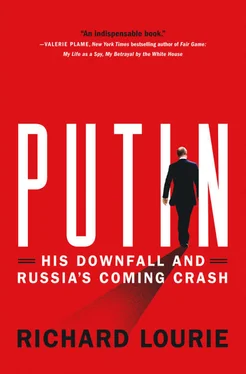

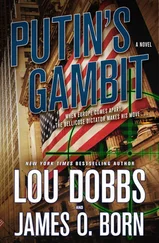
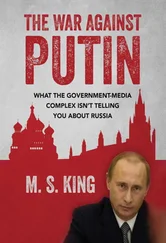
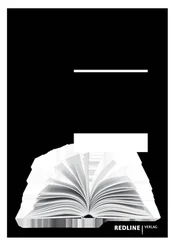
![Stephan Orth - Behind Putin's Curtain - Friendships and Misadventures Inside Russia [aka Couchsurfing in Russia]](/books/415210/stephan-orth-behind-putin-s-curtain-friendships-a-thumb.webp)

